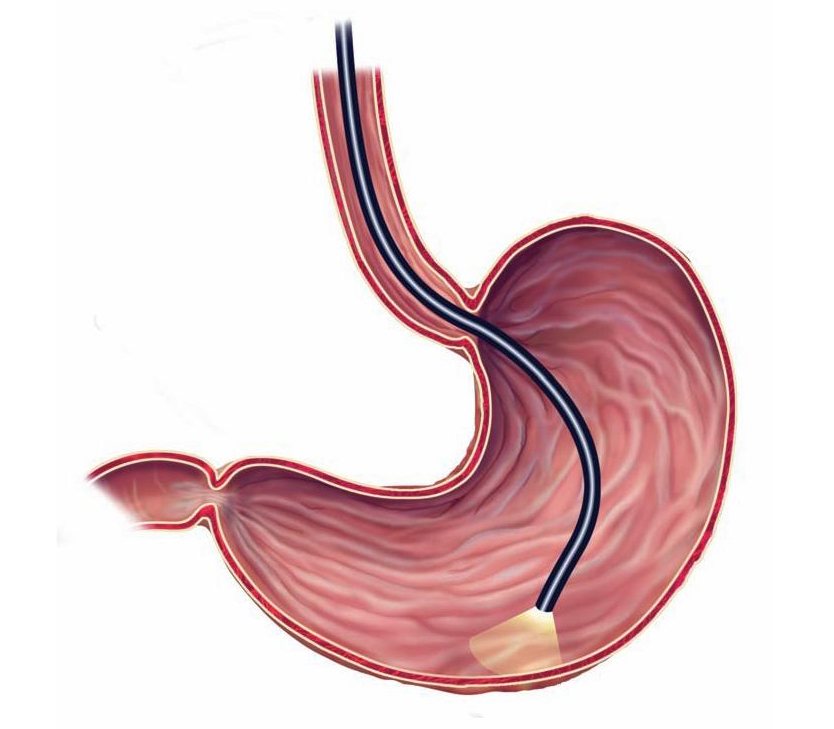Upper Endoscopy
All you need to know
What is endoscopy?
Upper Endoscopy (also known as gastroscopy, EGD, or esophagogastroduodenoscopy) is a procedure that enables your doctor to examine the lining of the oesophagus (swallowing tube), stomach and duodenum (first portion of the small intestine). A bendable, lighted tube about the thickness of your little finger is placed through your mouth and into the stomach and duodenum

Why is it done?
Upper endoscopy is commonly used in the diagnosis and management of gastroesophageal reflux disease (GERD).
It is indicated in men and women with:
- heartburn and alarm symptoms (dysphagia, bleeding, anaemia, weight loss, and recurrent vomiting)
- Typical GERD symptoms that persist despite a therapeutic trial of 4 to 8 weeks of twice-daily proton-pump inhibitor therapy
- Severe erosive esophagitis after a 2-month course of proton pump inhibitor therapy to assess healing and rule out Barrett esophagus. Recurrent endoscopy after this follow up examination is not indicated in the absence of Barrett oesophagus
- History of esophageal stricture who have recurrent symptoms of dysphagia. Best Practice
- In men older than 50 years with chronic GERD symptoms (symptoms for more than 5 years) and additional risk factors (nocturnal reflux symptoms, hiatal hernia, elevated body mass index, tobacco use, and intra-abdominal distribution of fat) to detect cancer of the esophagus
How to prepare before endoscopy?
The stomach should be completely empty. You should have nothing to eat or drink for approximately 8 hours before the examination. Medication may need to be adjusted or avoided. It is best to inform your surgeon of ALL your current medications as well as allergies to medications a few days prior to the examination. Most medications can be continued as usual. Medication use such as aspirin, Vitamin E, nonsteroidal anti-inflammatories, blood thinners and insulin should be discussed with your surgeon prior to the examination. It is essential that you alert your surgeon if you require antibiotics prior to undergoing dental procedures, since you may also require antibiotics prior to gastroscopy.
What are the precautions needed after the procedure?
You might feel slightly uncomfortable. You are likely to wait for an hour or so in the hospital for the effects of sedation to wear off. You will have to avoid driving back also. Following an upper GI endoscopy, you may have a sore throat.
“My vision is to spread awareness; to support and serve everyone in recognising that health is their most valuable asset.”
+91 9811020477
- Jeewan Mala Hospital, Karol Bagh
- Apollo Spectra Hospital, Karol Bagh
- Wish Clinic, Vasant Vihar

